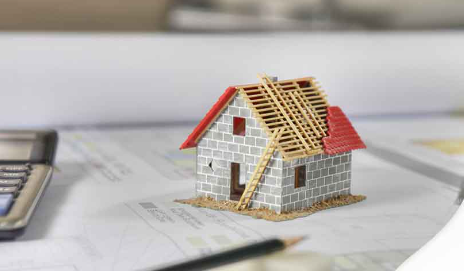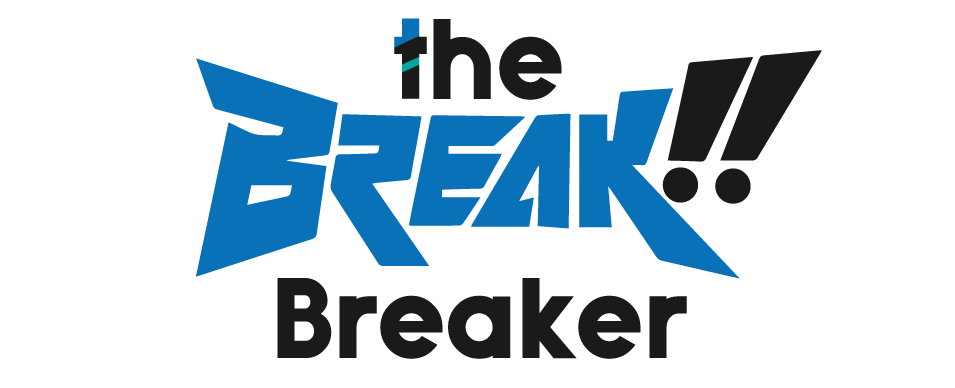
Roof Replacement Financing Options: What You Need To Know
Replacing your roof can be a daunting task, both in terms of the physical work required and the financial burden it may place on you. However, as a homeowner, you understand the importance of having a sturdy and secure roof over your head. Whether it’s time for a complete overhaul or just minor repairs, knowing your financing options can help alleviate some of that stress.
When it comes to paying for a new roof, there are several options available to you. Some may choose to finance through their contractor or take out home equity loans, while others might opt for personal loans or even credit cards. Additionally, there are government programs available to assist with funding.
With so many choices at your disposal, it’s important to do your research and determine which option is best suited for your specific needs and financial situation. In this article, we’ll explore each of these financing options in more detail so that you can make an informed decision about how best to fund your roofing project.
Key Takeaways
– There are several financing options available for roof replacement, including financing through a roofing contractor, home equity loans, personal loans, credit cards, and government programs.
– Homeowners should carefully consider the pros and cons of each option and their eligibility requirements before making a decision.
– Longer repayment terms may result in paying more interest overall, and budget planning is crucial when considering financing options.
– Eligibility requirements vary depending on the program, but income level and credit score are important factors in determining eligibility. Failure to make payments on a home equity loan can result in losing your home.
Financing through a Roofing Contractor
You’ll be happy to know that one option for financing your roof replacement is through a roofing contractor who can offer you flexible payment plans. Many roofing contractors have partnerships with financing companies, making it easier for you to get the funding you need without having to go through a separate lender.
With this type of financing, the contractor will work closely with you to determine what type of payment plan works best for your budget and needs. Roofing contractor financing typically offers low-interest rates and minimal fees, making it an affordable option for those who want to replace their roof but cannot afford the upfront costs.
This type of financing is also ideal if you’re looking for a hassle-free way to finance your project as many contractors handle all the paperwork and application process for you. However, if this option doesn’t meet your needs, there are other alternatives available such as home equity loans.
Roofing contractor financing typically offers low-interest rates and minimal fees, making it an affordable option for those who want to replace their roof but cannot afford the upfront costs. For an example of a roofer who offers this and more, click here.
Home Equity Loans
If you’re considering a home equity loan to finance your roof replacement, there are several key points to keep in mind.
First, it’s important to weigh the advantages and disadvantages of this financing option, as well as consider whether you meet the qualification requirements.
Additionally, be sure to research interest rates and repayment terms offered by different lenders to find the best fit for your financial needs.
By doing your homework and carefully considering all aspects of a home equity loan, you can make an informed decision about whether it’s the right choice for you.
Advantages and Disadvantages
Now, let’s weigh the pros and cons of using a home equity loan for your roof replacement financing.
One major advantage is that you can often secure a lower interest rate than with other forms of credit, since the loan is secured by your property. This means you could potentially save money in interest charges over time compared to using a credit card or personal loan.
However, there are also some disadvantages to consider. First and foremost, taking out a home equity loan puts your home at risk if you’re unable to make payments on the loan. Additionally, there may be significant closing costs associated with obtaining the loan, which could add up quickly and make this option less cost-effective in comparison to other financing options.
Keep these factors in mind when deciding whether or not a home equity loan is right for your roofing project needs. And speaking of qualifying for loans…
Qualification Requirements
To be eligible for a home equity loan, borrowers must meet certain qualification requirements set by the lender. The most important requirement is income verification, as lenders want to ensure that you have a stable source of income to repay the loan. You’ll need to provide documentation such as tax returns or pay stubs to prove your income level.
In addition, lenders will also look at your credit scores and history. They want to know if you’re a responsible borrower who pays their debts on time. A good credit score can improve your chances of getting approved for a home equity loan and may result in better interest rates and repayment terms. It’s important to check your credit report prior to applying for any loans so you can correct any errors or address any negative marks before submitting your application.
With these qualification requirements in mind, let’s move on to discussing interest rates and repayment terms.
Interest Rates and Repayment Terms
Understanding the interest rates and repayment terms on a home equity loan can help you make informed decisions about your financial future and feel confident in your ability to manage your debts. When comparing loans, it’s important to pay attention to the annual percentage rate (APR) which includes both the interest rate and any fees associated with the loan. A lower APR means less money paid over time, but keep in mind that some lenders may have hidden fees such as application or prepayment penalties.
Additionally, budget planning is crucial when considering financing options for roof replacement. Make sure to calculate how much you can afford to pay each month towards the loan without causing financial strain. Longer repayment terms may offer lower monthly payments but could result in paying more interest overall. It’s important to find a balance between affordable monthly payments and minimizing total interest paid over time.
By carefully comparing loans and planning a realistic budget, you can make an informed decision about financing your roof replacement project.
Moving forward into personal loans, it’s important to consider all factors before making a decision on which option is best for you.
Personal Loans
Hey there, if you’re looking for a flexible way to finance your roof replacement, personal loans could be the answer you’ve been searching for. Personal loans are unsecured loans that don’t require collateral and can be used for a variety of purposes like home improvement projects. They have fixed interest rates and repayment terms, making it easier to budget and plan your payments.
Here are 4 things to consider when getting a personal loan for your roof replacement:
1. Your credit score will affect the interest rate you’re offered.
2. The loan amount will depend on your income and creditworthiness.
3. Shop around for lenders to compare interest rates and fees.
4. Make sure to read the fine print before signing any agreements.
When considering personal loans, keep in mind that they may not be the best option for everyone. If you have poor credit or need a larger loan amount, other financing options like home equity loans or government programs may be more suitable.
Next up, we’ll discuss how credit cards can also be used as a financing option for your roof replacement project.
Credit Cards
Credit cards can be a convenient and accessible way to pay for your roof replacement project. With cash loans and installment plans, you have the flexibility to choose the best financing option that suits your budget and needs.
Plus, credit cards often come with rewards and benefits like cashback or travel points, making it more appealing than traditional financing methods. However, it’s important to note that credit cards also come with higher interest rates compared to personal loans or government programs.
This means that if you’re unable to pay off the balance in full each month, you could end up paying a significant amount in interest charges over time. As such, it’s essential to carefully weigh the pros and cons of using credit cards as a financing option before making a decision.
When considering all your options for roof replacement financing, don’t forget about government programs that may be available. These programs can provide low-interest loans or grants for home improvements like roof replacements.
Keep reading to learn more about these opportunities and how they could help you save money on your roofing project.
Government Programs
If you’re considering government programs for financing your roof replacement, there are a few key points to keep in mind.
First, it’s important to get an overview of the available programs and what they offer.
You’ll also need to check eligibility requirements carefully to make sure you qualify.
Finally, be prepared for the application process and approval timeframes, which can vary depending on the program you choose.
Overview of Available Programs
You’ll want to know about the various programs available for financing your roof replacement. Here are some options to consider:
– Personal Loans: You can apply for a personal loan from a bank or credit union. Your credit score impacts the interest rate you receive, so it’s important to compare rates from different lenders. This type of loan may offer more flexibility in terms of repayment schedules and interest rates.
– Home Equity Loans or Lines of Credit: If you have equity in your home, you may be able to borrow against it for your roof replacement. These loans typically have lower interest rates than personal loans because they are secured by your property. However, if you fail to make payments, you risk losing your home.
– Credit Cards: While not ideal due to high interest rates, using a credit card could be an option if you only need a small amount of financing or plan on paying off the balance quickly.
It’s important to explore all of these options and compare interest rates before making a decision on how to finance your roof replacement. Once you’ve chosen a program that best suits your needs, the next step is determining whether or not you meet the eligibility requirements for that particular program.
Eligibility Requirements
Now that you’ve got an idea of the financing programs available for roof replacement, it’s time to determine if you qualify for them.
Eligibility requirements vary depending on the program, but there are two main factors that most programs consider: income and credit score.
Income requirements can range from low-income households to moderate-income families. Depending on the program, you may need to provide proof of income, such as tax returns or pay stubs.
Credit score also plays a significant role in determining your eligibility. A good credit history shows lenders that you’re responsible with your finances and can repay the loan on time. If your credit is less than desirable, some programs may offer options for people with bad credit.
Understanding these eligibility requirements will help you narrow down which financing option may be best suited for your needs. Once you’ve determined which program aligns with your financial situation, it’s time to move on to the application process and approval timeframes.
Application Process and Approval Timeframes
Ready to get started on your roof replacement financing? Let’s dive into the application process and how long it might take to get approved.
First, make sure you have all the necessary documents ready for submission. This includes proof of income, identification, and any other documents required by the lender. Having everything in order will speed up the approval process and prevent delays.
Next, consider your credit score as it plays a significant role in your loan application approval. If you have a good credit score, there’s a higher chance that you’ll be approved quickly. However, even if your credit score is low, some lenders offer financing options that can help those with less than perfect credit scores.
Once you’ve submitted your application with all required documentation, expect to receive a response from the lender within 2-3 business days. Keep an eye out for emails or phone calls from them requesting additional information or approving/declining your application.
To summarize:
– Gather all necessary documents before submitting
– Consider your credit score and look for lenders who work with lower scores
– Expect to hear back from lenders within 2-3 business days
– Be prepared to provide additional information if requested by the lender
Conclusion
So there you have it, all the information you need to know about financing your roof replacement. Whether you choose to go through a roofing contractor or explore other options such as home equity loans, personal loans, credit cards, or government programs, make sure to do your research and carefully consider the terms and interest rates before making a decision.
As the saying goes, “an ounce of prevention is worth a pound of cure.”Investing in a new roof may seem like a daunting expense at first, but it can ultimately save you money in the long run by preventing costly damage from leaks or other issues. Don’t let financial concerns hold you back from protecting your home and family – explore your financing options today and take the first step towards peace of mind.




